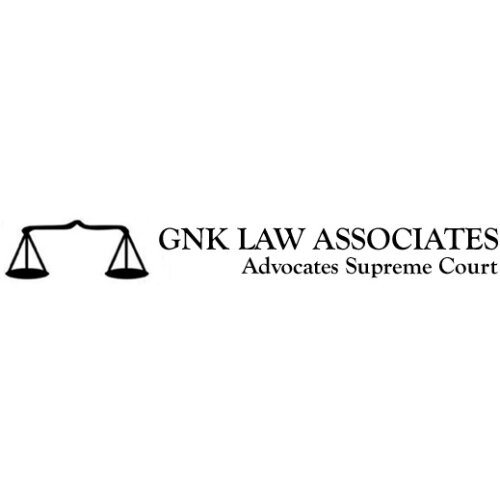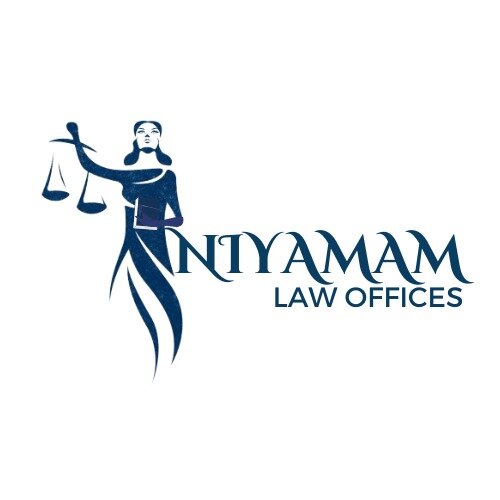Best Landlord & Tenant Lawyers in Delhi
Share your needs with us, get contacted by law firms.
Free. Takes 2 min.
Free Guide to Hiring a Real Estate Lawyer
List of the best lawyers in Delhi, India
About Landlord & Tenant Law in Delhi, India
Landlord and tenant laws in Delhi are designed to govern the relationship between property owners and their tenants, ensuring a fair and equitable housing market. The law covers a wide range of issues including rent control, security deposits, eviction processes, maintenance responsibilities, and resolution of disputes between landlords and tenants. The Delhi Rent Control Act, 1958, is one of the primary legislations that lays down the rules and regulations for renting properties in Delhi. It aims to protect tenants from unfair eviction and ensure that landlords receive a reasonable return on their property investment.
Why You May Need a Lawyer
There are several situations where you may need legal assistance in landlord and tenant matters:
- Lease Agreement Preparation: Ensuring that a lease agreement accurately reflects the rights and obligations of both parties can be complex.
- Eviction Notices: Navigating the proper legal procedures to evict a tenant requires precision to avoid legal complications.
- Rent Control Issues: Understanding and applying the rent control laws can be challenging without specialized knowledge.
- Security Deposit Disputes: Disagreements often arise over the return or deduction of security deposits.
- Property Maintenance and Repairs: Clarifying who is responsible for property upkeep can require legal clarification.
- Lease Renewal and Termination: Negotiating lease renewals or terminations can benefit from legal advice to avoid disputes.
- Illegal Subletting: Addressing unauthorized subletting requires understanding of the contractual and legal implications.
Local Laws Overview
The key laws governing landlord-tenant relationships in Delhi include:
- Delhi Rent Control Act, 1958: It restricts the rate of increase of rent and provides protection to tenants against arbitrary eviction.
- Model Tenancy Act: Though not fully implemented, it aims to balance the rights and responsibilities of landlords and tenants, encouraging rent agreements.
- Civil Procedure Code: It outlines the legal proceedings for addressing disputes in civil matters, including landlord-tenant issues.
Frequently Asked Questions
What is the process for evicting a tenant in Delhi?
To evict a tenant legally, a landlord must have a valid reason under the Delhi Rent Control Act, such as non-payment of rent or misuse of the property. The landlord must issue a legal notice and can proceed with eviction only after securing a court order.
Can a landlord increase the rent arbitrarily?
No, the Delhi Rent Control Act sets guidelines on how and when rent can be increased. Generally, rent cannot be increased more than 10% every three years.
How much security deposit can a landlord demand?
The law does not set an exact limit, but it is typically one to two months' rent. However, disputes over unlawful retention can arise if the terms are not clearly specified in the lease agreement.
What rights do tenants have regarding property repairs?
Tenants have the right to a habitable living environment. The landlord is usually responsible for major repairs unless the tenant has caused damage.
Can a tenant sublease the rented property?
Subleasing is generally not allowed unless explicitly permitted in the lease agreement. Unauthorized subletting can be grounds for eviction.
What should be included in a lease agreement?
A comprehensive lease agreement should include details of the rent, duration, security deposit, maintenance responsibilities, repair obligations, and the terms for renewal or termination.
Are verbal rental agreements valid?
While verbal agreements can be legally binding, they are difficult to enforce. It's highly recommended to have all agreements documented in writing.
What should I do if my landlord unlawfully withholds my deposit?
You can first address the issue through mediation or negotiation. If unresolved, you may file a complaint in small claims court or seek legal counsel to recover the deposit.
What happens if a tenant refuses to vacate after lease expiry?
The landlord can issue an eviction notice and pursue legal action through the courts to reclaim the property, provided there is a valid reason under the current laws.
How are landlord-tenant disputes resolved in Delhi?
Disputes are commonly resolved through negotiation, mediation, or arbitration. If these fail, parties may need to seek resolution through the local Rent Control Tribunal or Civil Court.
Additional Resources
Here are some resources that can provide further assistance:
- Delhi Rent Control Tribunal: Offers legal recourse for tenants and landlords under the Rent Control Act.
- Delhi Legal Services Authority: Provides free legal aid and advice for those unable to afford it.
- Consumer Court: Can be approached for compensation in cases of unfair practices by landlords.
Next Steps
If you need legal assistance in landlord and tenant matters, consider the following steps:
- Consult a Lawyer: Seek a lawyer specializing in landlord-tenant law to understand your options.
- Document Everything: Keep detailed records of all communications, agreements, and notices.
- Know Your Rights: Familiarize yourself with relevant laws and rights to make informed decisions.
- Try Mediation: If possible, attempt to resolve disputes amicably through negotiation or mediation.
- File a Complaint: If necessary, file a formal complaint with the appropriate legal body.
Lawzana helps you find the best lawyers and law firms in Delhi through a curated and pre-screened list of qualified legal professionals. Our platform offers rankings and detailed profiles of attorneys and law firms, allowing you to compare based on practice areas, including Landlord & Tenant, experience, and client feedback.
Each profile includes a description of the firm's areas of practice, client reviews, team members and partners, year of establishment, spoken languages, office locations, contact information, social media presence, and any published articles or resources. Most firms on our platform speak English and are experienced in both local and international legal matters.
Get a quote from top-rated law firms in Delhi, India — quickly, securely, and without unnecessary hassle.
Disclaimer:
The information provided on this page is for general informational purposes only and does not constitute legal advice. While we strive to ensure the accuracy and relevance of the content, legal information may change over time, and interpretations of the law can vary. You should always consult with a qualified legal professional for advice specific to your situation.
We disclaim all liability for actions taken or not taken based on the content of this page. If you believe any information is incorrect or outdated, please contact us, and we will review and update it where appropriate.

















